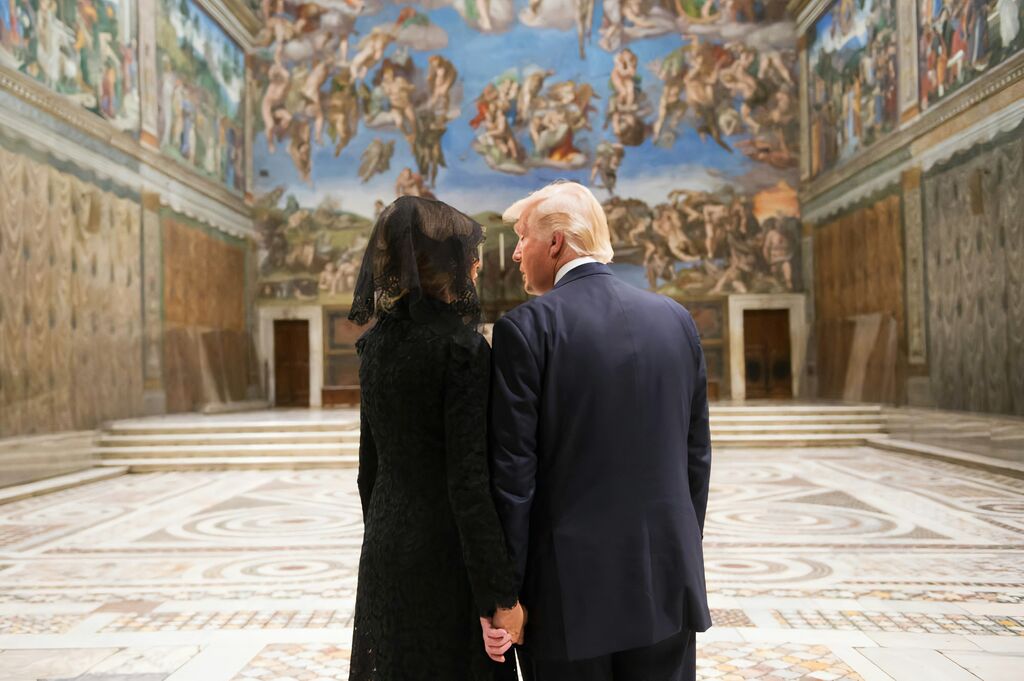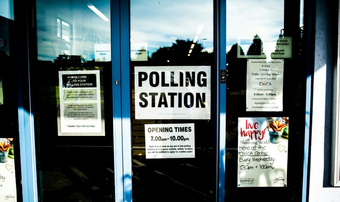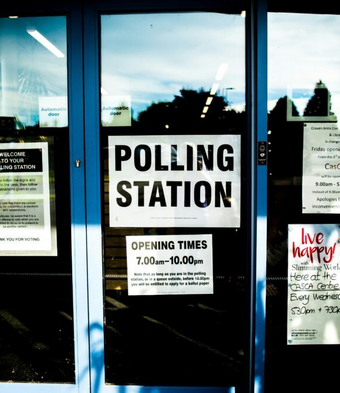Tariffs, Trade Wars, and Trump

What a week it has been for economists. Last week Rachel Reeves announced her Spring Statement, adjusting her public finance figures and spending commitments in light of worse than expected economic forecasts. This week we saw council tax, utilities, and other household bills increase alongside price rises for businesses with the implementation of higher employer National Insurance contributions and a rise in the National Minimum Wage.
Yet bigger than all of these – and the announcement that will frame most of our economic experience for the foreseeable future - is President Trump’s introduction of significant tariffs.
The sweeping set of tariffs he announced on Thursday - a 10% blanket duty on all U.S. imports, alongside steep country-specific levies such as 34% on Chinese goods and 20% on European imports - are set to take effect in early April. They are framed as a bold defence of American economic sovereignty, an act of economic independence and a critical part of the President’s ‘Make America Great Again’ agenda.
As we wait to see how markets, governments, and citizens react, it would be good for Christians to reflect on how God’s word speaks into these matters. In particular, Christians ought to consider how Donald Trump’s politics can be a warning, and a challenge, to the Church’s posture with regards to economic, technological, political, and social change.
What the Bible has to say about Trade and tariffs
If we consider tariff policy first. The Bible may not mention “tariffs” in the modern sense, but it has a great deal to say about how we treat one another in commercial life.
In Leviticus 19:35–36, we are instructed to use honest weights and measures - an ancient expression of fair trade. This speaks to the heart of what tariffs are supposed to protect: equity between trading partners. If a country is subject to systemic disadvantages, then some degree of economic correction may be legitimate.
Yet fairness cannot be narrowly defined. We must also consider how policies impact the poor, the foreigner, and the everyday citizen. In Amos 5, God rebukes those who “levy a straw tax on the poor” while enriching themselves. Justice that benefits the powerful while burdening the powerless is no justice at all.
Winners, Losers, and the Common Good
President Trump’s tariff plan, in its design, is aimed at protecting American manufacturing and reducing dependence on countries seen as economically aggressive. These are not irrelevant goals. Many communities have felt the pain of industrial decline and economic dislocation. Trade imbalances can erode local industry, and governments have a duty to protect the wellbeing of its citizens, and this includes providing access to work as well as empowering those that can work to do so.
But we must be honest about who bears the cost. Tariffs function like indirect taxes - they raise the price of imported goods, which disproportionately affects families on lower incomes. Already, businesses have signalled that prices on cars, electronics, and household goods are likely to rise.
We are reminded of the biblical command to care for the poor, the worker, and the foreigner among us. In Deuteronomy 24, we’re warned not to exploit hired workers or withhold their wages. Economic policy that results in job insecurity, inflation, or international retaliation risks violating that very spirit.
Of course, this is exactly what President Trumps claims his policies are seeking to address, although the majority of economists disagree with him about the likely outcomes.
Christian Wisdom in a Global Age
So how should we respond?
We should resist the temptation to view trade policy as a zero-sum game. Instead, we should affirm a vision of global neighbourliness where prosperity is shared, and competition is governed by integrity. The global economy is a system of relationships - and our calling is to love our neighbours, even across oceans.
We should also pray for our leaders, that they would govern with wisdom, compassion, and take a long view of the common good. Policies should be judged not only by their short-term political wins, but by whether they promote peace, stability, and justice, at home and abroad, in the long run.
And we must speak with grace, even as we speak with truth and clarity. Christian engagement in economic matters is not about partisanship but about faithfulness to a higher kingdom. That kingdom measures success not by GDP, but by how we treat “the least of these.”
A challenge to our posture
Speaking the truth and goodness of God’s word with grace in this way requires confidence and assurance both in our identity and in the future. This, I fear, is becoming an increasing challenge to many in the Church on both sides of the Atlantic.
President Trump’s posture and policies may seem strong, and therefore appealing to some. Yet, tariffs as a symptom of isolationism and nationalism are not biblical principles. Rather, they are condemned.
The Bible affirms a healthy love for one's people and land. Passages like Jeremiah 29 and Romans 13 present an approach to the nation formed by gratitude and care for the places in which God puts us - believers are to seek the good of the city, but this is to take place within a wider framework of justice to which all governments are accountable. This is a patriotism rooted in humility and responsibility, not superiority and dominance.
Furthermore, Philippians 3:20 reminds us that our primary citizenship is in heaven, and that is why nationalism can be problematic. Our earthly home is only ever a limited and temporal good, it can never be the New Jerusalem. We do a great disservice both to the gospel and to the places in which God puts us when we exalt the nation as ultimate, dismiss the outsider, and resist critique.
Israel was a nation of God’s people called to always be outward facing, reflecting God’s justice and mercy to all nations, not looking to dominate them. That must be our vision for the nation we live in. To look forward in the story of Scripture where we have a vision of all nations being gathered - not divided - under the rule of Christ (Revelation 7:9).
Tariffs often become a symptom of a nation looking inward and being deeply pessimistic about the ‘other’ and the future. When a nation, or more gravely the Church, becomes enamoured with such thinking, there is a danger that compassion, grace, mercy, and hope will be the casualties resulting in a more selfish and cynical politics.
The pivot in US economic and diplomatic policy should be a warning to the Church not to look in on itself and let fear be the motivation for our words and actions.
I believe that God’s word serves as the guide and model for how we best live life. That it is the means by which every person can flourish personally and together in community. But I am deeply troubled by those who invoke an à la carte selection of ‘Christian values’ in service of a nationalism that the Bible warns us against.
Nationalism often misrepresents the complexity of the problems we face, presenting overly simplistic solutions that fail to grapple with the difficulties of the world, but also the breadth and radical nature of God’s word.
A call to our imagination
Therefore, in this moment of global uncertainty, President Trump’s tariff policy poses a challenge - not only to markets, but to the Church and our moral imagination.
In economics, will we build a world where justice is for everyone, not just the strong? Will we seek a trade system rooted in fairness and compassion, not just advantage?
And more broadly, for the Church, will we reflect a confidence in where history is heading? Can we be both realistic about the power of sin and the extent of the world’s brokenness, yet also faithful to our calling to keep looking outward with grace, and generosity with love for the vulnerable, marginalized, and disenfranchised?
We must strive to be humble under the lordship of a saviour who did not act on the principle of reciprocity but radical generosity. We must have confidence in the power of the Holy Spirit to bring change at a personal, community, national, and international level.
And ultimately, we should be inspired by the invitation of the Father to participate in the kingdom work that is a foretaste of the redemption and healing that He will bring to full completion and seek to do what is good in His sight.






